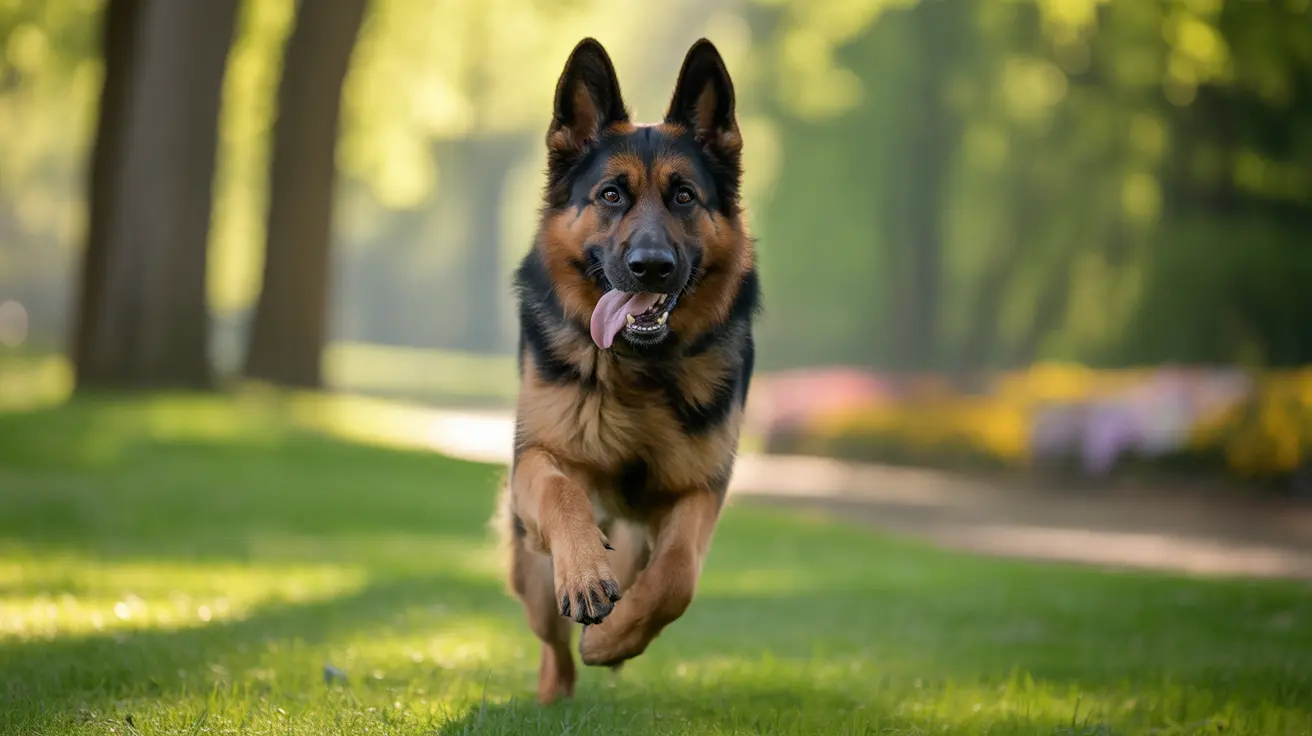Choosing the right dog food for your German Shepherd is crucial for maintaining their health, energy, and longevity. These magnificent dogs have specific nutritional requirements that must be met through high-quality, breed-appropriate food. Let's explore the best feeding options and nutritional guidelines to keep your German Shepherd thriving.
Understanding German Shepherd Nutritional Needs
German Shepherds require a carefully balanced diet with specific protein, fat, and nutrient ratios. These large, active dogs need high-quality protein (18-22% minimum) to maintain their muscular build and support their active lifestyle. Additionally, their diet should include adequate fat content (13-20%) for sustained energy and proper nutrient absorption.
Essential Nutrients for Optimal Health
A well-balanced diet for German Shepherds should include:
- High-quality protein sources like chicken, lamb, or fish
- Essential fatty acids for coat and skin health
- Glucosamine and chondroitin for joint support
- Digestible carbohydrates for energy
- Probiotics and prebiotics for digestive health
Top Recommended Dog Food Brands
Breed-Specific Formulas
Royal Canin Breed Health Nutrition German Shepherd Adult offers specially designed kibble and targeted nutrition for the breed. The formula includes easy-to-digest proteins and joint-supporting nutrients specifically tailored for German Shepherds.
High-Performance Options
Taste of the Wild Southwest Canyon provides excellent nutrition with 36% protein content and chelated minerals, making it ideal for active German Shepherds. VICTOR Purpose Performance Formula is another outstanding choice, offering 29% protein and 20% fat for working dogs.
Feeding Guidelines and Best Practices
Adult German Shepherds typically need 2.5 to 3.5 cups of dry food daily, divided into two meals. The exact amount depends on factors like:
- Age and activity level
- Current weight and health status
- Food caloric density
- Individual metabolism
Maintaining a Healthy Feeding Schedule
Establish consistent feeding times and measure portions carefully to prevent overfeeding. Monitor your dog's weight and adjust portions as needed to maintain optimal body condition.
Special Considerations for Health Issues
Many German Shepherds have specific health concerns that can be managed through diet:
- Joint problems: Choose foods with added glucosamine and chondroitin
- Digestive sensitivity: Look for formulas with probiotics and easily digestible ingredients
- Skin allergies: Consider limited-ingredient diets with novel proteins
Frequently Asked Questions
What are the key nutritional needs for adult German Shepherds to ensure optimal health?
Adult German Shepherds need high-quality protein (18-22%), moderate fat (13-20%), and essential nutrients like glucosamine and chondroitin for joint health. The diet should also include omega fatty acids for coat health and digestible carbohydrates for energy.
How much and how often should I feed my adult German Shepherd to meet its energy requirements?
Feed adult German Shepherds 2.5-3.5 cups of dry food daily, divided into two meals. Daily caloric needs range from 1,200-2,100 kcal, depending on activity level and size.
Can switching to a grain-free diet improve digestive health in German Shepherds, and what alternatives should I consider?
While some German Shepherds benefit from grain-free diets, it's not necessary for all dogs. Consider both grain-inclusive and grain-free options, focusing on food quality and digestibility rather than grain content alone.
What are the best dog food brands for German Shepherds prone to joint problems or digestive issues?
Royal Canin Breed Health Nutrition, Taste of the Wild, and VICTOR Purpose Performance are excellent choices. Look for formulas with joint supplements and easily digestible proteins.
How can I determine if my German Shepherd is getting the right amount of protein and fat in its diet?
Check the guaranteed analysis on the food label - look for minimum 18-22% protein and 13-20% fat. Monitor your dog's weight, energy levels, and coat condition to ensure nutritional needs are being met.






